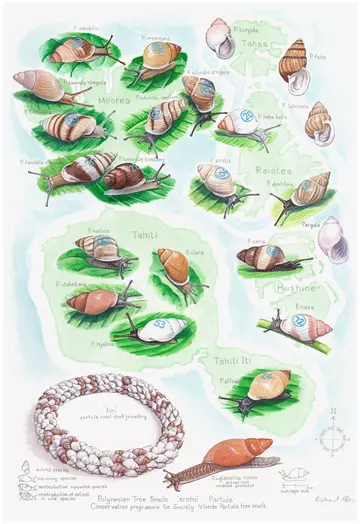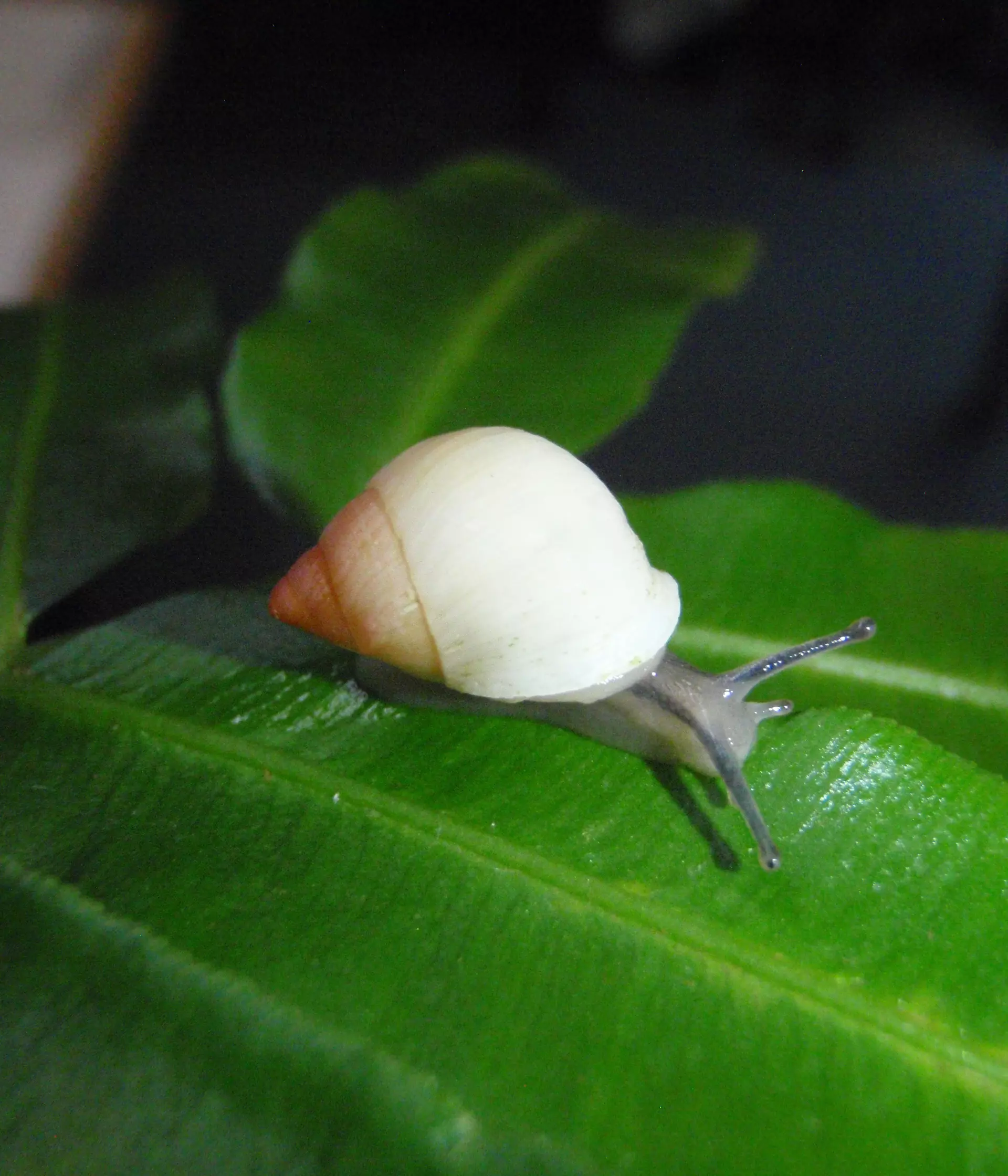By collaborating with communities around the world we protect and restore healthy ecosystems so people and wildlife can thrive together.
Partula snails are a part of Polynesian culture, as the shells of each species represent the cultural identity of each island. So when species were wiped out by a carnivorous snail species, the damage went beyond harming fragile ecosystems - it was a loss of Polynesian heritage, too. We saved the remaining Polynesian snails back in 1990's before they could be wiped out forever, and we have been breeding them ever since to restore their precious ecosystem and place in history.
Why did the partula snail nearly go extinct?
The carnivorous rosy-wolf snail was introduced to the islands to control another non-native species, the Africa giant land snail. Predictably, this had disastrous consequences. The rosy-wolf snail devastated the native partula snail population, these specialist hunters can chase down the scent of their prey’s slime trails at three times the speed of a normal snail.
Saving partula snails
Together with the international zoo community, we have reintroduced over 17,000 snails. Our zookeeper Dave Clarke led a team to save the last 9 individuals of one species back in 1991, and after over 30 years of careful breeding, we were able to return this species to the wild. Our work is helping restore a part of Polynesia's cultural heritage and strengthen their ecosystems.
Partula snail conservation achievements
We're working closely with the French Polynesian government and the international Zoo community, leading an ambitious reintroduction programme which includes:
Actively breeding, releasing and monitoring snails on four islands. Together we have reintroduced 11 previously extinct in the wild species.
Pioneering the world's first predator-proof snail reserves on the Society islands.

Together we've saved many partula snail species from extinction. Let’s drive forward a journey of recovery for the planet, to restore the wonder and diversity of wildlife everywhere. Become a ZSL supporter and help nature recover.
You can also visit our partula snails lab to see our cutting edge science-led conservation in action at London Zoo's Tiny Giants.
EXTINCT-IN-THE-WILD PARTULA SNAIL SPECIES RETURNED TO THE WILD
We’re collaborating with Zoo’s internationally, French Polynesian Government agencies, universities and museums are involved with this international conservation initiative. We coordinate the International and European Programme for these species while the St Louis Zoo Coordinates the American Programme.
Partners
Our main French Polynesian Government partner is La service direction de l’environnement de la polynesie francaise. Our zoo community partners are AZA member associations and EAZA member associations, under the World Association of Zoos and Aquariums. The programme is also associated with IUCN’s Conservation Breeding Specialist Group, Mollusc Specialist Group and Reintroduction Specialist Group.
Sponsors
Construction of the Tahitian reserve was funded by a Conservation International’s Critical Ecosystem Partnership Fund (CEPF) and its maintenance was supported with a grant by the Mohammed bin Zayed Species Conservation Fund. Long term field conservation support is provided by a collaboration of the French Polynesian Government and all zoo’s participating in the breeding programme.
Now, more than ever, life needs our support. Through cutting-edge research helping people and wildlife live better together. Stay up to date with our fight for wildlife.
